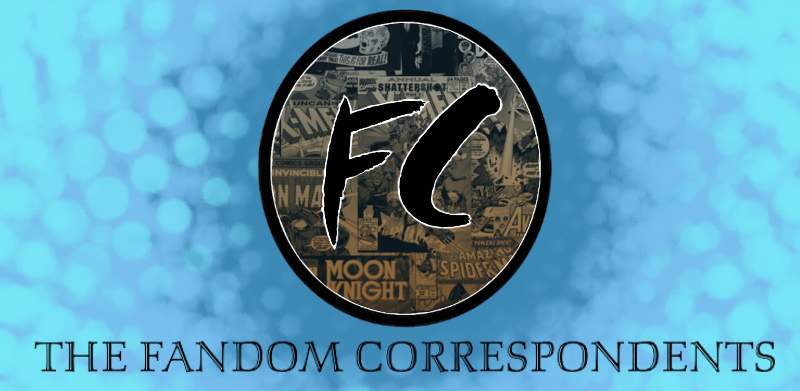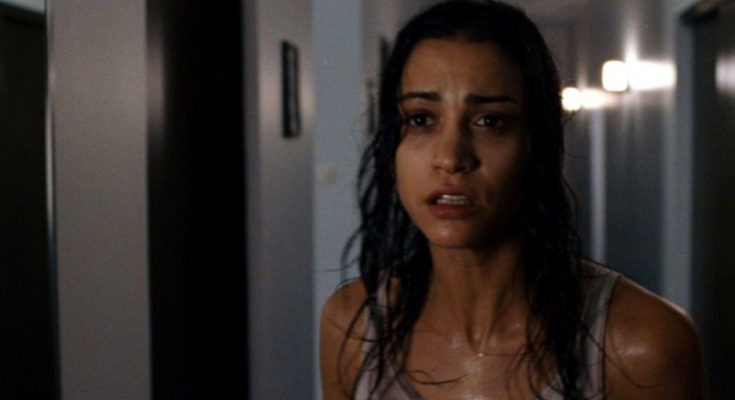TRIGGER WARNING: Martyrs has far more gore and graphic violence than anything on my Halloween list, and it deals heavily with themes of child abuse and physical/psychological trauma. Please be cautious and consult online synopses and trigger guides before watching.
Let me start this one with a little cautionary advice: Martyrs is unlike anything else on my list. It turns the gore and violence up to 11, and it is NOT a movie that everyone should see. In fact, if you struggle with themes like abuse, or if you have difficulty with realistic portrayals of violence, then skip this one. There are tons of better movies I’d be happy to recommend to you and chat about. However, this one earned a spot on my list, so I thought I’d be remiss to not at least discuss it. Side note: Martyrs is definitely not one you want to watch with other people. So if you’re combing through my writing trying to find party movies this Halloween, skip right over this one.
Martyrs is a French horror film–boy do the French love their gore and violence–about two young women who embark on a journey into human depravity as they deal with their traumatic pasts and the evil they see before them. When Lucei finds the people who abused her in her childhood, she looks to take revenge with the aid of her dear friend Anna. When I think about Martyrs, I think of it as two different movies, and I’ll get to that in a bit. But the reason why I think Martyrs is an important movie is the relationship it portrays between the two protagonists.
As I’ve talked about before, I work in mental health. Much of modern mental health deals with trauma-informed care, the idea that traumatic experiences in our lives–especially in our childhoods–take considerable psychological and developmental tolls on our mental health and can result in dangerous thoughts, behaviors, and other problems. Typically, trauma is discussed in two forms: primary trauma, which one experiences firsthand, and secondary trauma, which one often experiences secondhand from investing one’s time and energy into helping others heal from their primary trauma. The protagonists of Martyrs display an important yet tragic relationship: Lucei is absolutely ruled by her primary trauma as a child, evidenced by her impulsive behavior and hallucinations. Anna, on the other hand, is subject to severe secondary trauma from caring for Lucei for so long. Together, they depict a dangerous relationship that ends up consuming both of them and displays the importance of facilitated recovery and healthy boundaries for those with primary and secondary traumatic burdens. I’ve worked with people who have had somewhat similar traumatic backgrounds as the protagonists, and it is incredibly easy–and dangerous–to take on their trauma in your endeavor to help them heal. Martyrs portrays a unique kind of horror: the horror that arises from our desperation to help others while losing ourselves in the process. It’s a unique take, and I think it is really valuable for those able to watch it. Or at least, part of it.
Martyrs completely loses its way halfway through. I truly wish that Martyrs was only 45 minutes long, because the story it would tell then would beautifully tragic: trauma driving our protagonists toward extreme measures, a second chance to help and heal someone in need and find redemption, only to struggle with the fact that some evil occurs without reason. But instead, the filmmakers decided to ruin their unique take on horror by attempting some strange metaphysical take on the human psyche that utterly ruins the first half of the movie. By the end of it, all semblance of trauma portrayal is either forgotten or spoiled by a bizarre message saying. . . what exactly? That trauma is worth it for the resilience it builds? That we can supercede our mortal forms by embracing the evil from others? I really don’t know what the second half of Martyrs is trying to say, and I’m not sure the filmmakers really knew either. In fact, I would even go so far as to recommend watching the movie my way. About 50 minutes in, just turn it off. The movie will mean more, and you won’t have to worry about the weird philosophical Hellfire club plot twist that takes everyone out of it.

